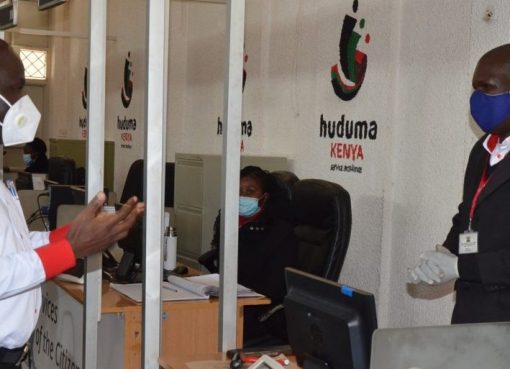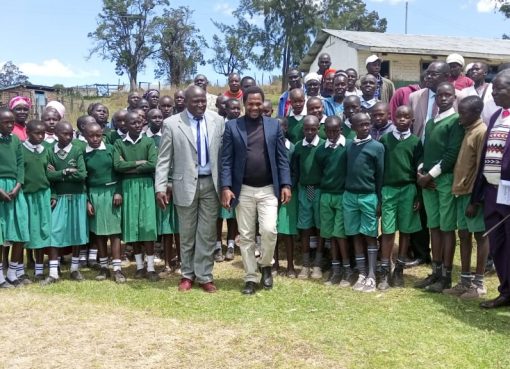Kwale Governor Fatuma Achani has called for an end to stigmatisation and discrimination for people living or associated with HIV and AIDS.
Governor Achani says taking action against HIV/AIDS-related stigma and discrimination is critical in halting the spread of the virus in communities.
The Governor observed that stigma and discrimination deny people the rights to health information, to services to protect them against HIV infection and to receive appropriate treatment, care and support when HIV-positive.
Achani said the twin fear discourages people from seeking information on HIV and AIDS, counselling and testing, disclosing and accepting their status, or accessing HIV/AIDS-related services.
She noted that HIV/AIDS stigma and discrimination are violations of human rights and undermine public health efforts to tackle the HIV epidemic.
She also noted that mother-to-child transmission of HIV has been going down since 2016, from 22 percent to 9.6 percent in 2023.
The governor revealed that this year alone of 427 babies born to HIV-positive mothers in hospitals, only six infants had the condition due to advances in antiretroviral drugs and research breakthroughs.
UNAIDS categorized HIV stigma and discrimination—along with inequity and human rights abuses-as primary obstacles to scaling up services in HIV and AIDS and achieving universal access to comprehensive HIV prevention, treatment, care, and support.
The Joint United Nations Programme on HIV/AIDS (UNAIDS) leads and inspires the world to achieve its shared vision of zero new HIV infections.
Achani called for more public awareness of the HIV/AIDS prevalence to prevent its spread, as HIV is transmitted when the virus enters the body, usually by infected immune cells in blood, vaginal fluids, or semen.
Governor Achani said that people should be aware that HIV (Human Immunodeficiency Virus) is a viral disease transmitted between people via blood, fluids such as semen, rectal fluid, vaginal fluid and breast milk.
Human immunodeficiency virus (HIV) is the virus that causes acquired immunodeficiency syndrome (AIDS).
Common HIV and AIDS symptoms are similar to a flu-like illness within several days to weeks after exposure to the virus, including fever, headache, open sores or ulcers in the mouth, fatigue, weight loss, night sweats, appetite loss, rashes that may come and go quickly, a sore throat; and swollen lymph nodes (glands) in the neck and groin.
She says HIV/AIDS is not spread by shaking hands; it is not spread by hugging people and it is definitely not spread by mosquito bites.
The Governor stated that the county HIV infection rate has been declining in recent years and called upon each and every one in Kwale to take responsibility in efforts to fight the spread of HIV infection.
“Through collaboration with stakeholders and the community, cases of HIV infections in Kwale have dropped, indicating that we are becoming more careful and responsible. “I, however call upon those who do not know their HIV statuses to visit our health facilities and check their statuses,” she said.
She was addressing residents at Kwale Baraza Park during the annual commemoration of World AIDS Day, whose theme is “Let Communities Lead”.
The celebrations were also graced by, among others, Deputy Governor Chirema Kombo and County Commissioner Meru Mwangi.
“As we commemorate this year’s World AIDS Day, we join other stakeholders in spreading awareness about HIV/AIDS, how to prevent it and also take this opportunity to end stigmas associated with the disease,” she said.
Achani said the county leadership remains committed to ensuring that Kwale residents are sensitized and also get access to HIV prevention and treatment services all the time.
World AIDS Day, designated on 1 December every year since 1988, is an international day dedicated to raising awareness of the AIDS pandemic caused by the spread of HIV infection and mourning those who’ve died of the disease.
The coastal county boss said every December 1st, World AIDS Day provides an opportunity for all stakeholders to jointly reflect on the fight against HIV/AIDS, raise awareness and advocate for continuous sustained efforts in tackling the disease which remains a major global public health challenge.
Governor Achani said her administration has established HIV testing centres in all health centres across the 20 administrative wards in the county to increase the testing capacity and ensure HIV positive persons have access to antiretroviral therapy.
“Knowing one’s status is the first step that must be taken by everybody so as to jointly curb the spread of the virus,” she said.
Achani noted that the devolved government is stocking antiretroviral drugs in all health facilities, adding that the availability of the antiretroviral drugs could manage the infected individuals.
By Hussein Abdullahi




